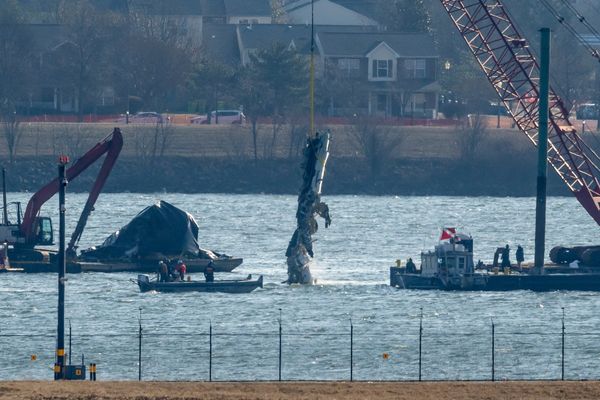
I’ve totaled one car in my lifetime. It wasn’t a pleasant experience hearing that I wasn’t going to get back behind the wheel of my beloved red Mustang again. However, after going through it, I learned a little more about totaled cars and how insurance companies handle them. The insurance company buys your totaled vehicle from you and, in some cases, will turn around and sell it to recoup some of their losses (yes, really). Here’s what you need to know about this practice.
What “Totaled” Cars Really Mean in the Insurance World
When an insurance company declares a vehicle totaled, it doesn’t necessarily mean the car is beyond repair. It simply means the cost to fix the damage exceeds a certain percentage of the car’s value, often around 70% to 80%. Once that line is crossed, the company pays out the insured and takes ownership of the car. From there, it’s not unusual for the vehicle to be sold at auction or passed to a salvage buyer. In many cases, these totaled cars are repaired and put back on the market.
Why Insurance Companies Buy Back and Resell Totaled Cars
The answer is simple: profit. Once a totaled car is paid off, it still holds some value, especially if parts are salvageable or repairs can be done cheaply. Insurance companies often recoup a large portion of their losses by reselling the car, either to rebuilders, dealers, or even unsuspecting buyers. The reselling process often happens through auto auctions, where these vehicles get snapped up fast. In some cases, the insurance company may even repair and resell the vehicle itself.
How Totaled Cars Reappear on the Market with “Clean” Titles
One of the more concerning aspects is how some totaled cars end up with clean or “rebuilt” titles that don’t tell the full story. In states with lax regulations, it’s easier to “wash” a title, erasing its salvage status before being sold again. This practice makes it difficult for buyers to know the car’s true history, especially if they don’t check the VIN or order a vehicle history report. These hidden histories can hide everything from flood damage to serious structural issues. And when these cars fail again, it’s the buyer—not the insurer—who ends up paying the price.
Why This Practice Puts Drivers at Risk
While some repaired totaled cars may be safe, many are not brought back to manufacturer standards. Rebuilt vehicles may pass a basic state inspection but still suffer from underlying problems like misaligned frames, faulty airbags, or electrical failures. In a worst-case scenario, a car could look fine on the outside but become deadly in an accident. Even small corner-cutting during the repair process—using aftermarket parts or skipping recalibrations—can lead to safety hazards. Unfortunately, the average buyer has no idea they’re getting a patched-up vehicle with a questionable past.
How to Spot a Totaled Car Before You Buy It
If you’re buying a used car, the burden is on you to do the homework. Always request a full vehicle history report through services like Carfax or AutoCheck, and don’t rely solely on what the seller says. Look for signs like salvage or rebuilt titles, gaps in ownership records, or registration changes across multiple states. Bring a mechanic you trust to do a thorough inspection, especially under the hood and around the frame. If something feels off or the price seems too good to be true, walk away.
The Financial Implications of Buying a Totaled Car
Buying a rebuilt car might save money upfront, but it often comes with long-term consequences. Insurers are wary of covering rebuilt vehicles and may charge higher premiums or deny comprehensive coverage altogether. The resale value of a totaled car is much lower, and many dealerships won’t take them as trade-ins. Even worse, if another accident occurs, your claim could be affected by the car’s prior history. Those savings on the sticker price could disappear quickly through repairs, premiums, or limited resale options.
What Lawmakers and Regulators Are (Not) Doing About It
Despite the safety and transparency concerns, few regulations exist to stop insurance companies from flipping totaled cars. Title-washing loopholes across states remain a major issue, and there’s no national database tracking every car declared a total loss. While some states require a salvage title to remain permanently, others allow rebuilding and rebranding with little oversight. Until stronger consumer protections are implemented, buyers are largely left to fend for themselves. Advocates have pushed for reform, but change has been slow to come.
Why This Trend Isn’t Going Away Anytime Soon
As car prices continue to rise, especially in the used market, the demand for “affordable” vehicles makes totaled cars more attractive to both sellers and buyers. Insurance companies, body shops, and dealers all stand to profit from giving these vehicles a second life. Unfortunately, that profit-driven model means that cutting corners is more likely than prioritizing long-term safety. Until more awareness and regulation exist, this quiet cycle of resell-and-repeat will keep spinning. The only defense drivers have is being informed.
Total Loss, Total Profit—But at Whose Expense?
The resale of totaled cars by insurance companies raises serious questions about consumer safety and transparency. What starts as a cost-saving measure for insurers often turns into a trap for used car buyers unaware of the risks. In a market where even “clean” cars may carry hidden dangers, knowing how to protect yourself is essential. Next time you shop for a used car, remember: a shiny paint job doesn’t mean a clean history. Always dig deeper before signing the dotted line.
Have you ever unknowingly bought a car with a hidden history? Share your story—or your thoughts on this growing trend—in the comments below!
Read More
9 Things That Will Immediately Void Your Homeowner’s Insurance
8 Insurance Perks Most People Don’t Know They Have
The post Auto Insurance Companies Are Quietly Buying Totaled Cars and Reselling Them appeared first on Clever Dude Personal Finance & Money.







